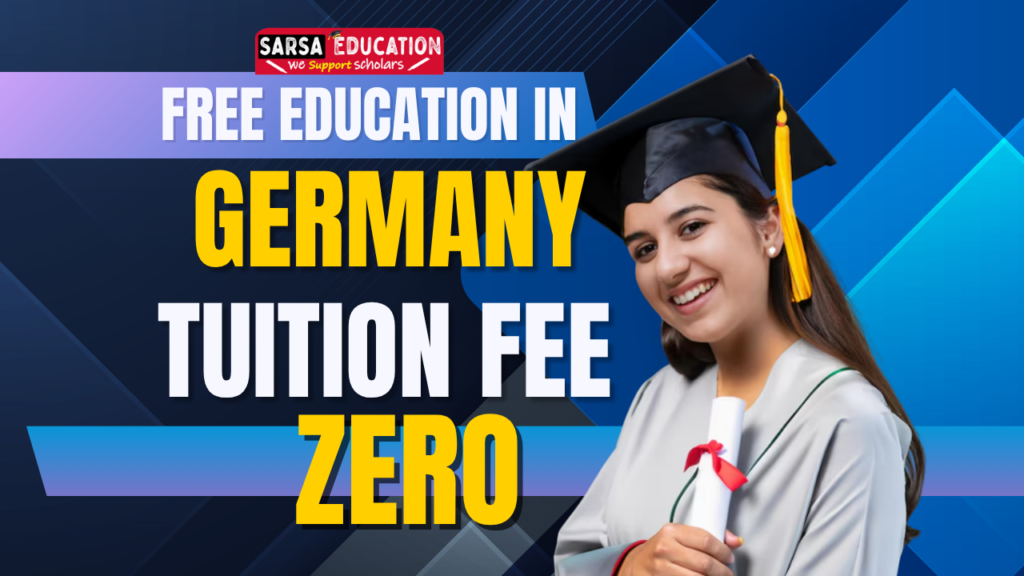MBBS in India Vs MBBS Abroad
MBBS abroad means getting your medical degree overseas from an internationally accredited university—for a period of 6 years, in English, and often at a lower cost. It involves understanding entrance eligibility (NEET, PCB scores, possibly IELTS/TOEFL/MCAT), confirming recognition by NMC, planning for FMGE, and preparing for cultural adaptation. With careful selection, it can be a cost-effective, globally-oriented route to becoming a doctor.
An MBBS in India is a 5.5-year regulated medical undergraduate degree (4.5 years of study + 1 year of internship), earned after clearing NEET and approved by the NMC. It trains students in modern scientific medicine and qualifies them to practice as physicians or pursue postgraduate medical education.
Contents
Eligibility of MBBS in India VS MBBS Abroad
To be eligible for MBBS in India vs Abroad the applicant must meet the following requirements:
The comparison of eligibility for MBBS in India vs MBBS abroad for Indian students is clearly given below:
| Criteria | MBBS in India | MBBS Abroad |
|---|---|---|
| Minimum Age | ≥ 17 years on or before admission year | ≥ 17 years by Dec 31 of admission year |
| Academic Qualifications | 10+2 with PCB + English, ≥ 50% aggregate (General), ≥ 40–45% (SC/ST/OBC) | Same 10+2 PCB+English criteria, ≥ 50% aggregate (≤ 40–45% for reserved categories) |
| Entrance Exam | Must qualify NEET-UG (All India exam) | Must qualify NEET-UG if planning Indian practice. Some countries don’t require NEET for admission but clearing is vital for NMC recognition |
| NEET Cut-Off | Varies by institution/state; ~50th percentile for General, 40th for reserved | Similar NEET qualifying standards. For abroad, general: ≥144–169; OBC/SC/ST: ≥113–129 |
| English Proficiency | NEET is in English/Hindi—no additional test needed | English-taught programs might require IELTS/TOEFL |
| Other Requirements | Medical fitness (as per college/state rules) | Similar medical fitness, plus passport, visa, NMC eligibility certificate |
| Regulatory Body | Regulated by NMC; Internship + NEET via counselling process | Programs must be recognized by WHO/NMC-listed universities; foreign grads must clear FMGE/NExT for Indian practi |
Note:
- Basic eligibility (age, PCB+English marks) is nearly identical for both paths.
- NEET-UG is compulsory for practicing in India—absolutely required for MBBS in India and essential even after MBBS abroad if you wish to return.
- MBBS in India follows a standardised NEET-based admission and counselling, regulated by the NMC.
- MBBS abroad may not require NEET for some universities, but clearing it is critical for FMGE/NExT and Indian registration.
- Abroad students may face additional steps: English proficiency tests, eligibility certificates, visas, and licensing compliance with NMC.
Cost Comparision of MBBS in India VS MBBS Abroad
Here’s a comprehensive cost comparison of MBBS in India vs. MBBS abroad, tailored for Indian students:
| Expense Category | MBBS in India (Govt College) | MBBS in India (Private/Deemed) | MBBS Abroad (Budget Countries) | MBBS Abroad (Developed Countries) |
|---|---|---|---|---|
| Tuition (Total) | ₹5–15 L (₹1–4 L/year) | ₹50 L–1.8 Cr (₹10–30 L/year) | ₹15–40 L (₹2.5–7 L/year) | ₹80 L–2.5 Cr (₹20–50 L/year in UK, US, Canada) |
| Living Costs (Total) | ₹2–5 L (₹10–25 K/month) | ₹9–18 L (₹1.5–3 L/year) | ₹6–12 L (₹0.5–1 L/year) | ₹22–65 L (₹50 K–1.5 L/month) |
| Total Cost (5–6 years) | ₹7–20 L | ₹60 L–2.5 Cr | ₹20–52 L | ₹1–3.5 Cr |
Important links:
Tashkent Medical Academy MBBS Admissions 2025
University of Georgia MBBS Admission 2025
MBBS in Georgia :Top Universities ,Fees & eligibility for Indians
Samarkand State Medical University MBBS Admissions 2025
Caucasus International University
Top 10 benefits of Studying MBBS in Georgia
10 Reasons for Studying MBBS Abroad For Indian Students
Here are 10 compelling reasons why studying MBBS abroad can be more advantageous compared to pursuing it in India, especially for Indian students. Here’s an answer for the students MBBS in India VS MBBS Abroad and why should they choose Abroad :
1. Lower Tuition & No Capitation Fees
Many foreign universities charge significantly lower fees (₹3–10 L/year in places like Russia, Ukraine, Romania) and do not require donation or capitation payments—a stark contrast to private MBBS colleges in India, where fees can exceed ₹1 crore .
2. Simplified & Merit-Based Admissions
Admissions are often based on high school marks (≥75% PCB) and NEET qualification only—no entrance tests or capped merit lists. This provides direct, transparent entry, bypassing NEET competition .
3. World-Class Infrastructure & Tech
Foreign institutions often offer modern laboratories, simulation equipment, and cutting-edge teaching facilities, enhancing educational experience .
4. Early & Extensive Clinical Exposure
Students start clinical rotations early in affiliated hospitals abroad, gaining hands-on patient experience, unlike in many Indian colleges .
5. Global Recognition & International Licensing
Degrees from WHO/NMC-recognized universities allow registration with FMGE/NExT in India and eligibility for global exams such as USMLE, PLAB, and AMC .
6. Rich Multicultural & Language Experience
Studying abroad brings exposure to diverse cultures, enhancing adaptability, empathy, and language skills—key in modern healthcare .
7. Cost-Effective Living
Countries such as Georgia, Russia, the Philippines, Belarus, Uzbekistan offer affordable living expenses (₹7k–25k/month), making the overall cost lower than private Indian medical colleges .
8. Avoid Waiting Years for Admission
In India, students may wait years due to limited seats and repeated NEET attempts; studying abroad presents a ready path to start MBBS immediately .
9. Strong Research & PG Opportunities
International medical schools often emphasize research-based learning, PBL methods, and offer exposure to postgraduate and specialty training opportunities abroad .
10. Personal Growth & Independence
Living abroad fosters self-reliance, resilience, confidence, and soft skills—vital traits for future doctors. One Georgia student shared that courses are less intense, allowing time for USMLE/PLAB prep, self-growth, and enjoying life abroad .
Frequently Asked Questions
- What is MBBS in India VS MBBS Abroad?
It’s an undergraduate medical degree—5.5 years in India (4.5 yrs study + 1 yr internship) and 6 years in abroad. - How long is MBBS in India VS MBBS Abroad?
MBBS in India is a 5.5 Years whereas MBBS Abroad is a 6 year course. - Is NEET mandatory for MBBS in India Vs MBBS Abroad?
Yes, clearing NEET-UG is essential for all medical colleges in India whereas NEET is not mandatory to study MBBS Abroad. Students who want to practice in India after MBBS need to qualify NEET. - Do I need NEET to study MBBS abroad?
Yes—NEET qualification is necessary if you wish to return and practice in India . - Are there entrance exams for MBBS in India Vs MBBS Abroad?
For Abroad Generally no admissions often rely on 10+2 marks and NEET, without additional tests .NEET qualification is not mandatory for MBBS Abroad
For India: It is necessary to qualify NEET. - What’s the minimum age requirement of MBBS in India Vs MBBS Abroad?
At least 17 years by admission year—for both India and abroad . - What are academic eligibility criteria of MBBS in India Vs MBBS Abroad?
Completion of 10+2 with Physics, Chemistry, Biology (≥50% aggregate); English is mandatory.For Indian students NEET is mandatory. - How much does MBBS cost in Indian government colleges?
Very economical—₹10k to ₹1 lakh annually. - What are private college fees in India?
₹2 lakh to ₹25 lakh per year; can exceed ₹1 crore total . - What’s the cost abroad in budget countries?
Tuition ~₹3–7 lakh/year; yearly cost ~₹15–40 lakh. - Which is affordable MBBS in India Vs MBBS Abroad?
MBBS in Abroad is affordable than MBBS Private colleges in India. Government Colleges in India has lower fees. - What about living expenses of MBBS in India Vs MBBS Abroad?
Abroad—₹1–3 lakh annually (₹0.8–3 lakh in budget countries);which can easily be earned by doing part time jobs abroad along with studying
India—₹1–3 lakh/year . - Are there hidden fees abroad?
Yes—visa, insurance, travel, FMGE/NExT fees (~₹1–2 lakh) . - How is infrastructure in India vs abroad?
India—well-established but variable;
Abroad—often modern, especially in Russia, China, Philippines, USA/UK . - How’s clinical exposure abroad?
Early rotations in many countries; patient load can vary. - How’s clinical exposure in India?
High—in government hospitals with diverse and heavy patient inflow. - Is MBBS from abroad accepted in India?
Yes—but only from NMC/WHO/ECFMG-recognized universities after passing FMGE or NExT . - What is FMGE?
A screening test (~300 MCQ), required for foreign medical grads to practice in India . - Will FMGE be replaced?
Yes—NExT will gradually replace FMGE as the licensure and PG eligibility test. - Can I practice abroad after MBBS abroad?
Yes, subject to licensing exams like USMLE (USA), PLAB (UK), MCCQE (Canada) . - How is PG access after MBBS in India?
Through NEET-PG; competition is intense (1.2 lakh grads for ~50k seats) . - Can I pursue PG abroad?
Yes—through USMLE, PLAB, etc.; eligibility depends on the destination country. - What’s the ROI comparison?
Govt India MBBS offers best ROI
Budget abroad offer better ROI than costly Indian privates; MBBS Abroad has more ROI than MBBS from private universities in India . - Is cultural adaptation hard abroad?
Yes—students face language barriers, weather, food, and social adjustment challenges. - Do foreign colleges have student support?
Many offer English-medium teaching and student support; quality varies by country. - Are they culturally diverse?
studying abroad exposes you to multiple cultures and global learning . - Can I work part-time abroad?
Yes part-time work is allowed . - Are all foreign degrees recognized?
No—must be from NMC-approved or WHO-listed universities; unrecognized degrees are invalid in India. - What about geopolitical or safety risks?
Some countries (e.g., Ukraine) may face political instability; Russia is considered safer currently . - Which option is better MBBS in India Vs MBBS Abroad?
MBBS in Abroad is better option as it is more affordable than private colleges of India offering good ROI, lifestyle.
For National/International Scholarship updates kindly join our WhatsApp channel
Follow the Sarsa Education channel on WhatsApp: https://whatsapp.com/channel/0029VaL9SgRAjPXJthnK9D0E
In case of any queries, please reach out to:
+91-9156405182 (Monday to Friday – 10:00 AM to 06:00 PM (IST))
For regular Scholarship/Fellowship/Internship updates:
Join our Telegram channel: Sarsa Education







